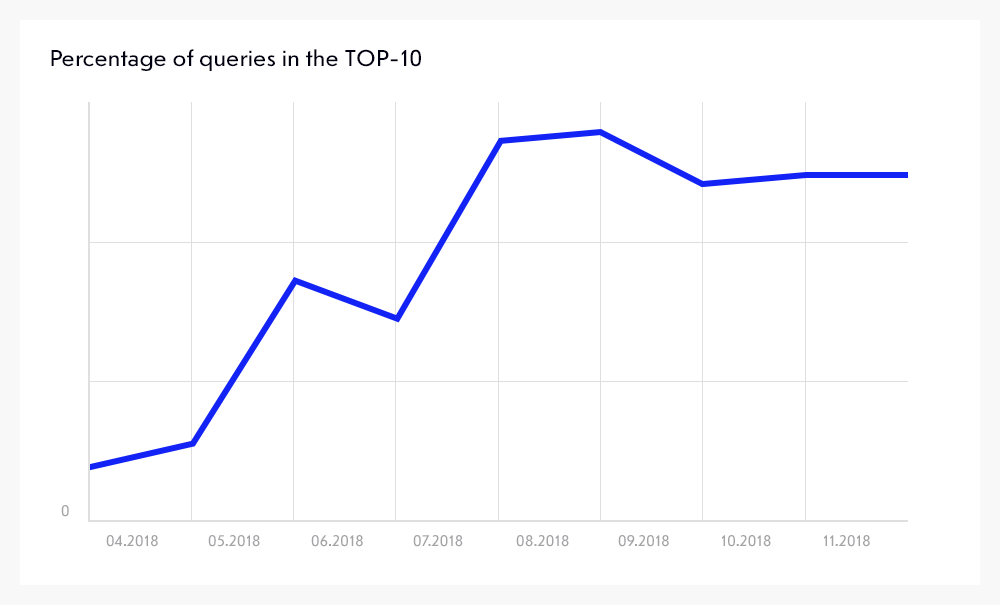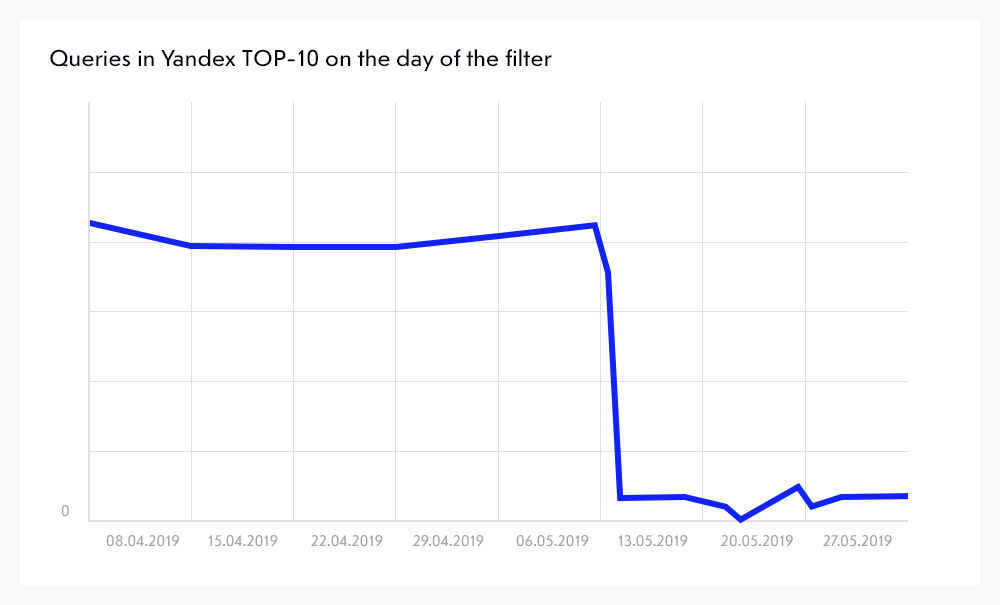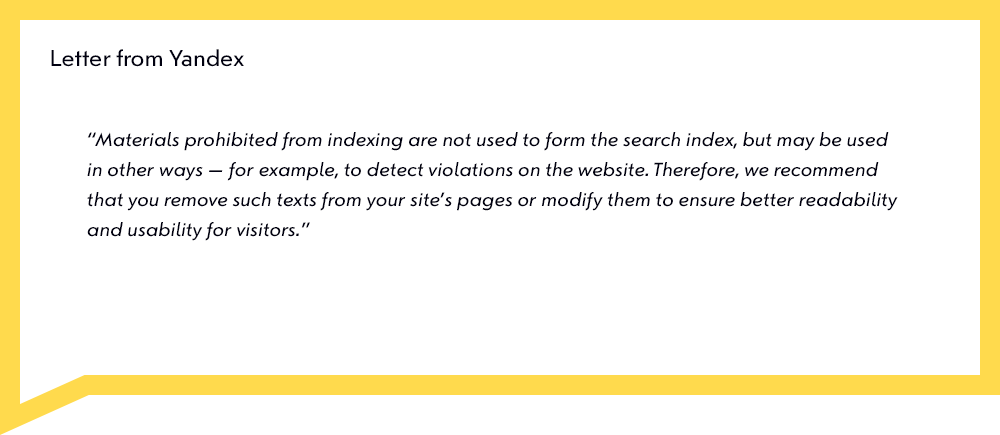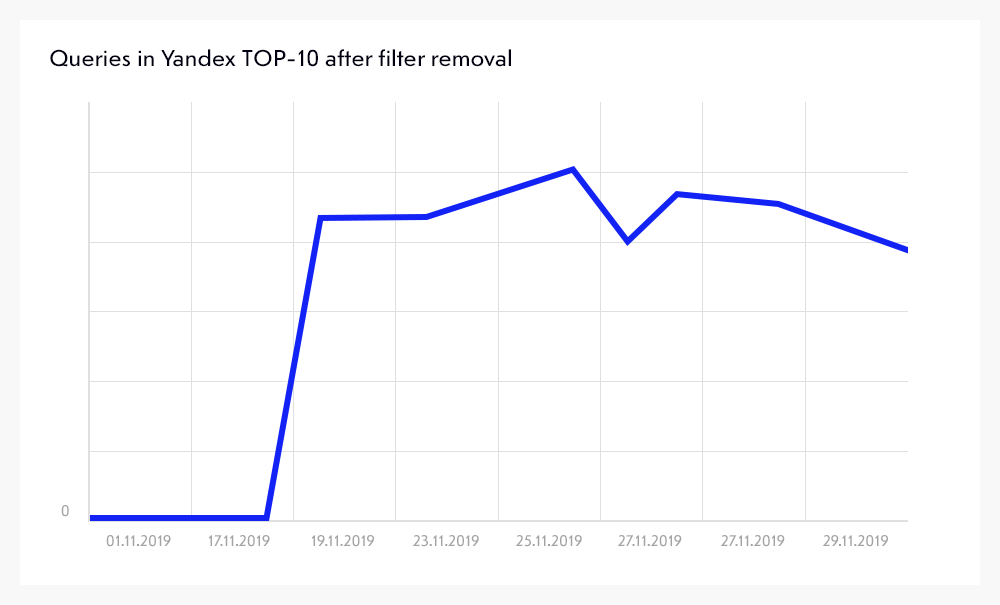There were many issues with the site, and one of them would later cause serious problems: the pages contained large ’walls of text.’ These included articles, as well as category and product descriptions.
We conducted a detailed audit, fixed all site errors, and implemented basic SEO measures. Then, we prepared and published optimized texts for promoted pages, and — at the client’s strong request — left existing texts on all others.
 6
6
Growth in the number of top-ranking queries
The website began steadily climbing to the top of search results.

In December 2018, the client decided to pause promotion for a few months. We advised them on potential losses and recommended continuing the work, but they chose to suspend the cooperation.
In 2019, Yandex re-evaluated the website content using the Baden-Baden algorithm.
Long articles and product descriptions attracted its attention. These were texts the client had placed on the website independently before our collaboration. We had preserved them, and some we hid from indexing. They were flagged as over-optimized, which led to the website being penalized and filtered out of search results in mid-May.

Our specialists contacted Yandex support. They explained the issue and provided examples of specific pages that had triggered the penalties.
We acted immediately: removed texts from category pages and revised the articles.
After a while, the website was rechecked — but it remained under the filter. Again, we reached out to support and received an update: the sanctions were still in place due to template texts in product descriptions. These were short texts with a high density of commercial keywords, and they were nearly identical — only the product name and model changed.
Naturally, we deleted those texts and submitted the site for another review. Unfortunately, Yandex’s verdict did not change. This time, the filter was applied due to hidden-from-indexing articles.
During our communication with Yandex representatives, we made an unpleasant discovery.

Texts hidden from indexing are still visible to search engine crawlers. This contradicts Yandex’s own guidelines, which clearly explain how to prevent indexing. It turns out that even if you follow those instructions, the content remains visible to crawlers. These pages won’t appear in search results, but will still be checked by robots.
We removed the entire article section — and one week later, the website was lifted from the filter. Its rankings immediately soared.
